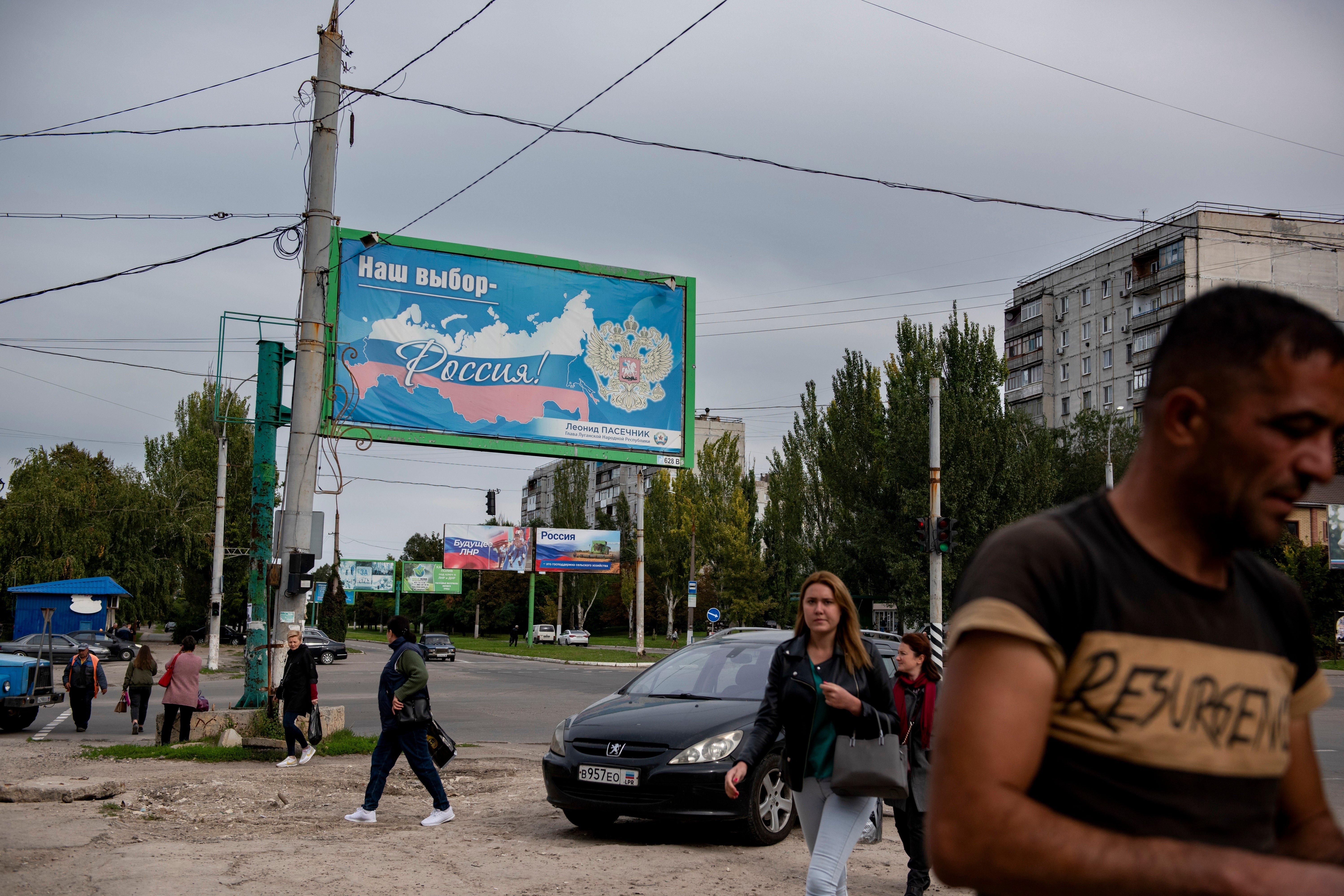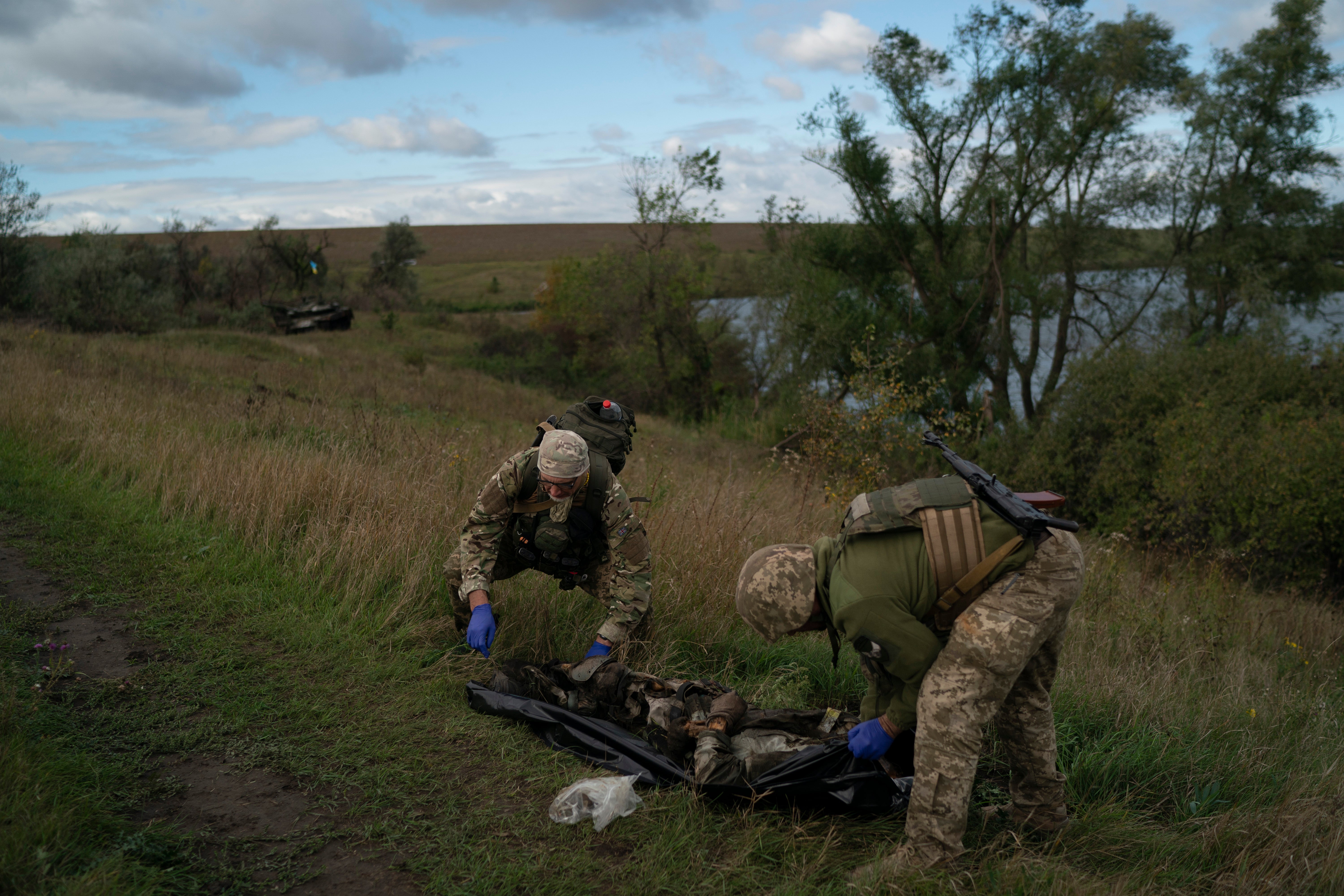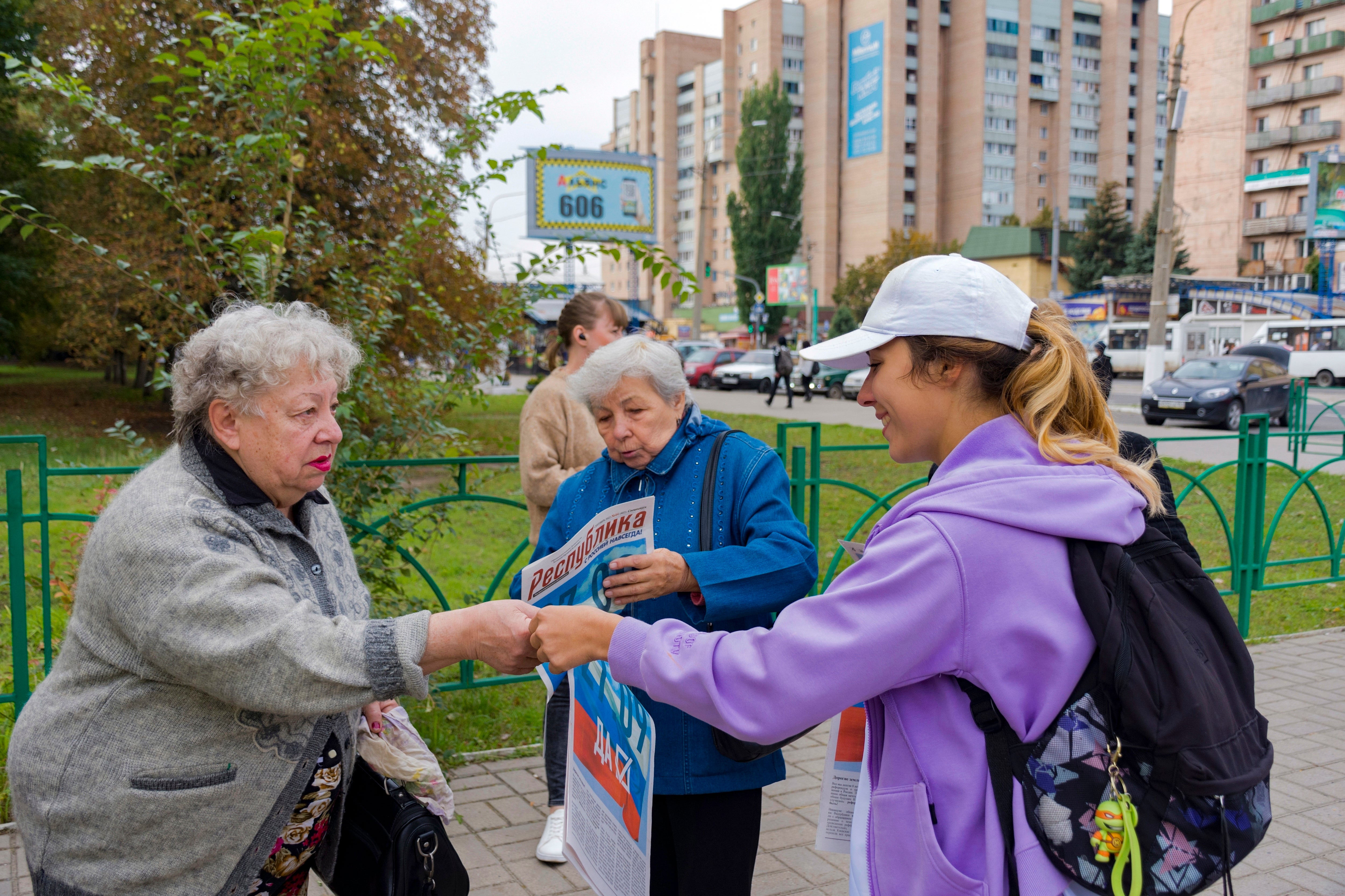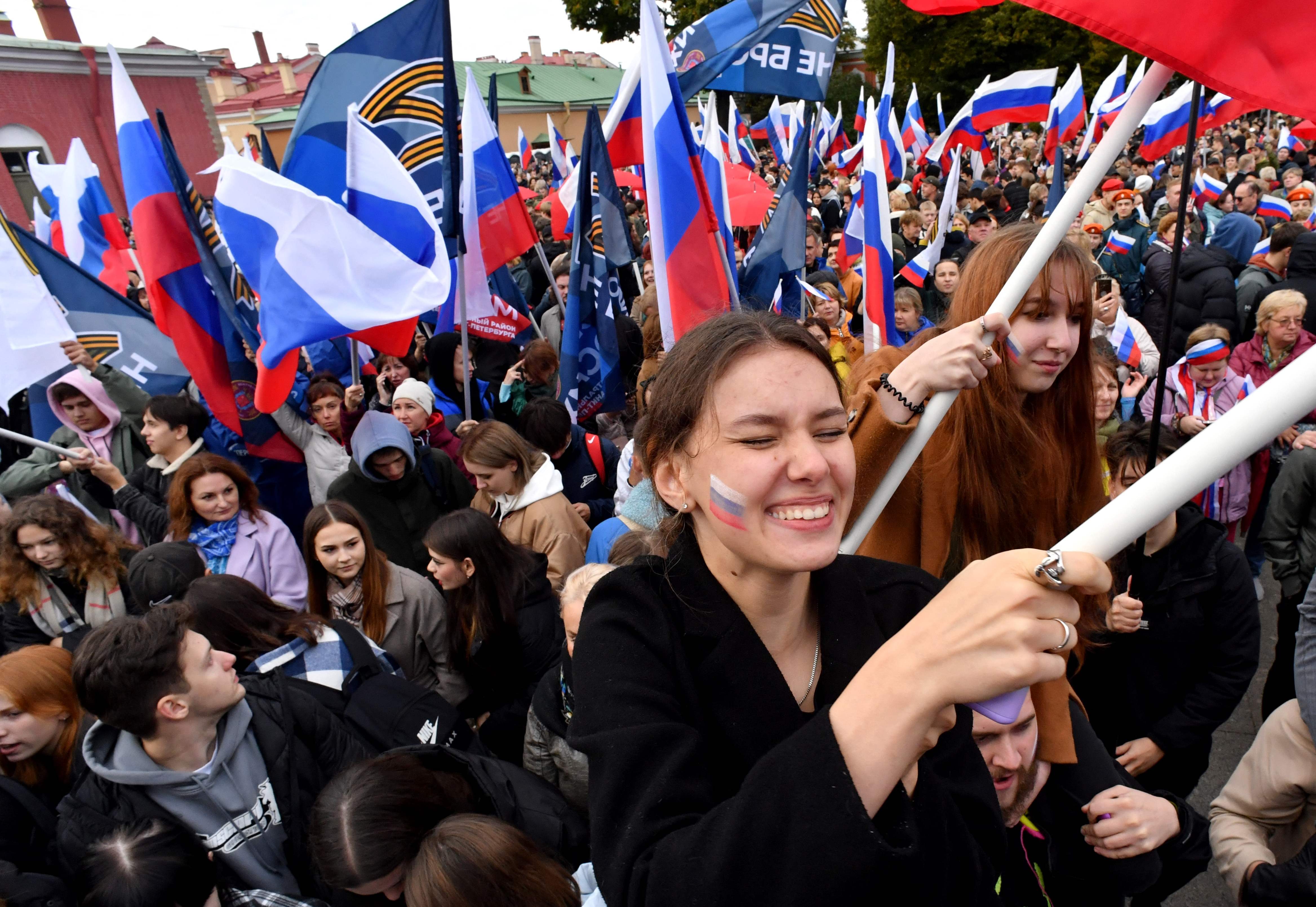‘Armed groups’ force Ukrainians to vote in ‘sham’ referendums as Russians show support for occupied regions
Voting has begun in several occupied regions of Ukraine
Your support helps us to tell the story
From reproductive rights to climate change to Big Tech, The Independent is on the ground when the story is developing. Whether it's investigating the financials of Elon Musk's pro-Trump PAC or producing our latest documentary, 'The A Word', which shines a light on the American women fighting for reproductive rights, we know how important it is to parse out the facts from the messaging.
At such a critical moment in US history, we need reporters on the ground. Your donation allows us to keep sending journalists to speak to both sides of the story.
The Independent is trusted by Americans across the entire political spectrum. And unlike many other quality news outlets, we choose not to lock Americans out of our reporting and analysis with paywalls. We believe quality journalism should be available to everyone, paid for by those who can afford it.
Your support makes all the difference.Voting began on Friday in hastily organised and highly disputed referendums in four occupied regions of Ukraine over the question of whether they should become part of Russia.
State media in Moscow said voting had got under way – in the “liberated territories” of Luhansk, Kherson and the partly Russian-controlled Zaporizhzhia and Donetsk regions – at 8am local time.
The results are expected to be announced on Tuesday, and are likely to dramatically escalate the seven-month war.
Moscow has continually warned this week that it will regard the regions, if they vote to join, as part of Russia, and that any attacks on them will be considered in the same light as an assault on any other part of the country. The Russian president, Vladimir Putin, and other leaders have even raised the prospect of using nuclear weapons to defend the regions, warning: “This is not a bluff.”
The referendums are taking place just days after Mr Putin ordered the partial mobilisation of Russians for the war effort, which could add about 300,000 Russian troops to the fight. Thousands more Russians fled the country on Friday in case they were called up, but huge rallies took place in Russian cities in support of the referendums taking place in the annexed regions.
Voting began as the UN’s human rights body said it had found evidence that war crimes had been committed in Russian-occupied areas of Ukraine.
The referendums have been widely denounced by Ukraine and the West as shams that carry no legal force. Western leaders have said they will not recognise the results.
Russia, which has lost ground in the war in recent weeks, does not fully control any of the four regions, and much of their population has fled because of the conflict.

One Ukrainian official on Friday called on residents not to go to the polls, claiming that “participation in a pseudo-referendum is the worst betrayal”.
Ivan Fedorov, the deposed Ukrainian mayor of Melitopol, in Zaporizhzhia province, also said on the messaging app Telegram that a loud explosion was heard by residents in the city centre an hour before voting started.
“People are afraid to leave their homes,” Mr Fedorov said.
Serhiy Haidai, the Ukrainian governor for the region of Luhansk, said that in the Russian-held town of Bilovodsk, a company director had told employees the voting was compulsory and that anyone refusing to take part would be fired and their names given to the security services.
He also said that in the town of Starobilsk, Russian authorities had banned the population from leaving the city until Tuesday, and that armed groups had been sent to search homes and coerce people to go out and take part in the referendum.
“The mood of the Russians is panicky because they were not ready to carry out so quickly this so-called referendum, there is no support, there’s not enough people,” Yuriy Sobolevsky, the displaced Ukrainian first deputy chair of the Kherson regional council, said on Telegram.

The votes appear certain to go Moscow’s way, but British foreign secretary James Cleverly told the United Nations on Thursday that Mr Putin intended to “fabricate the outcome of these referendums”.
The referendums have also been denounced as an illegal farce by US president Joe Biden, French president Emmanuel Macron, and UN secretary general Antonio Guterres.
The Organisation for Security and Cooperation in Europe, which monitors elections, said the outcomes would have no legal bearing as they do not conform with Ukrainian law or international standards, and the areas are not secure.
During the vote, election officials will bring ballots to people’s homes and set up makeshift polling stations near residential buildings, according to Russian-installed officials in the occupied regions, who cited safety reasons.
Tuesday will be the only day when the voters will be invited to visit normal polling stations.

Polling stations have also opened in Russia, where refugees from the occupied regions can cast their votes. Denis Pushilin, the separatist leader of the Moscow-backed authorities in the Donetsk region, called the referendum on Friday “a historical milestone”.
Vyacheslav Volodin, speaker of Russia’s lower house of parliament, the State Duma, addressed the occupied regions on Friday in an online statement, saying: “If you decide to become part of the Russian Federation – we will support you.”
Valentina Matviyenko, chair of Russia’s upper house of parliament, said that residents of the occupied regions were voting for “life or death” at the referendums.

As the votes were getting under way in the occupied regions, Russian social media sites were full of dramatic scenes of tearful families bidding farewell to men departing from military mobilisation centres.
In cities across the vast country, men hugged their weeping wives and children before being driven away. Russian anti-war activists, in the meantime, planned more protests against the mobilisation.
Ukraine says Russia intends to frame the referendum results as a sign of popular support, and then use them as a pretext for annexation – similar to what took place during its 2014 takeover of Crimea, which the international community still recognises as part of Ukraine.
Ukrainian president Volodymyr Zelensky only briefly mentioned the “sham referenda” in his nightly address, in which he switched from speaking in Ukrainian to addressing Russians in their own language, telling them they were being “thrown to their deaths”.

“You are already accomplices in all these crimes, murders and torture of Ukrainians,” he said.
“Because you were silent. Because you are silent. And now it’s time for you to choose. For men in Russia, this is a choice to die or live, to become a cripple or to preserve health. For women in Russia, the choice is to lose their husbands, sons, grandchildren for ever, or still try to protect them from death, from war, from one person.”
The referendums take place against a backdrop of incessant violence, as Ukraine’s presidential office said on Friday that at least 10 civilians had been killed and 39 others wounded by Russian shelling in nine Ukrainian regions in the previous 24 hours.
It added that fighting had continued in the Russia-held southern region of Kherson despite the voting, while Ukrainian forces had meted out 280 attacks on Russian command posts, munitions depots and weapons in the region.


Join our commenting forum
Join thought-provoking conversations, follow other Independent readers and see their replies
Comments